E-commerce can become a powerful driver of economic growth, inclusive trade and job creation across the developing world.
E-commerce and other economic activities enabled by digital technologies have the potential to accelerate progress across all the 17 Sustainable Development Goals (SDGs).
TrainForTrade is working with UNCTAD’s e-Commerce and Digital Economy Branch on different aspects of e-commerce.
Publications
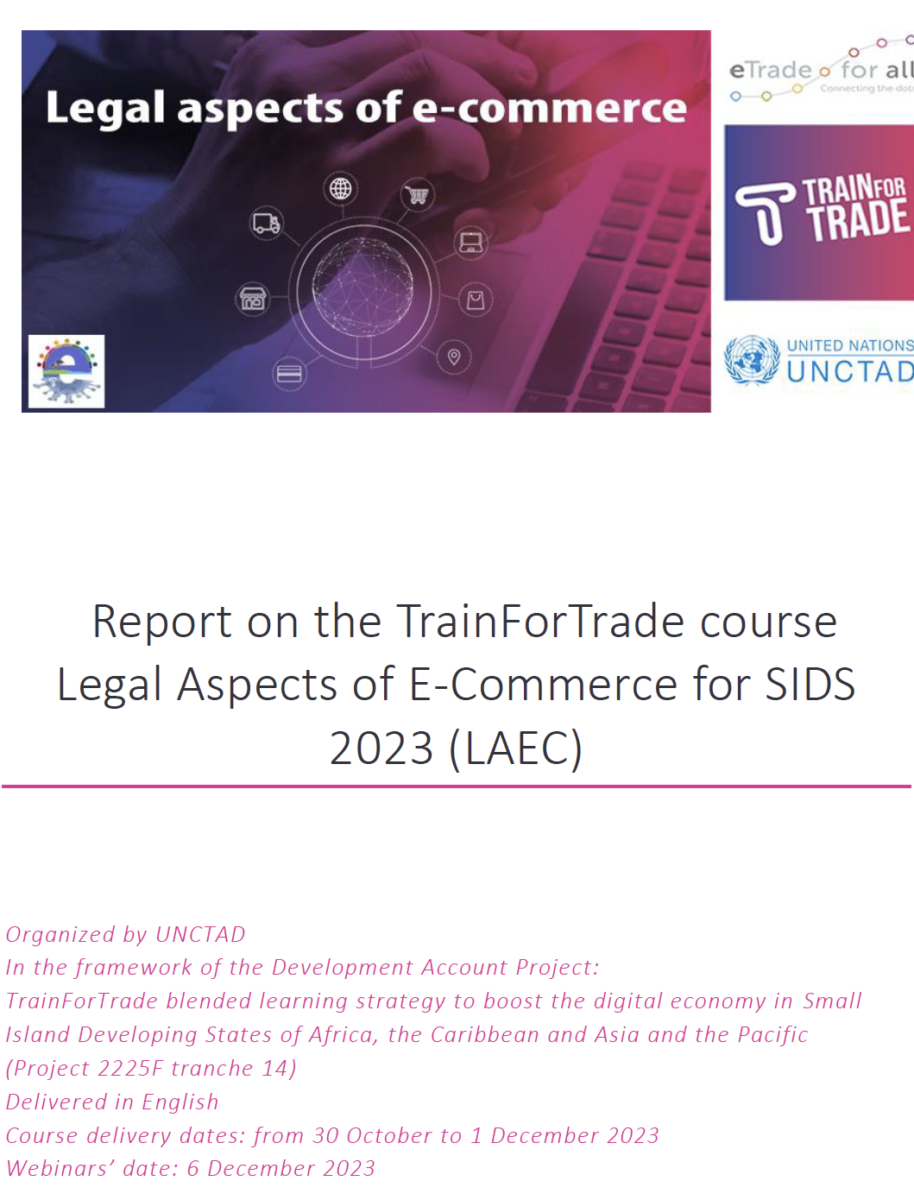
Legal Aspects of e-Commerce: 2023 course Report
The United Nations Conference on Trade and Development successfully organized an e-learning course on the “Legal Aspects of E-Commerce” (LAEC). It was delivered from 30 October to 1 December 2023, followed by a concluding webinar held on 6 December 2023.
Designed specifically for Small Island Developing States, the course was also open to other
countries/territories in the Pacific and the Caribbean regions at the request of Pacific Island Forum Secretariat and CARICOM as well as participants from United Nations missions in Geneva. Among the 282 participants from 37 countries or areas who initially registered, 145 started the course, while 135 completed it and obtained a certificate. The course was delivered via the TrainForTrade distance learning platform.

E-commerce for South America: 2023 course Report
The United Nations Conference on Trade and Development successfully organized an e-learning course on the “Curso a distancia sobre Comercio Electrónico” (e-Commerce course in Spanish). It was delivered from 30 October to 3 December 2023, followed by a concluding webinar held on 14 December 2023. Among the 372 participants from 27 countries or areas who initially registered, 242 started the course, while 160 completed it and obtained a certificate. The course was delivered via the TrainForTrade distance learning platform.
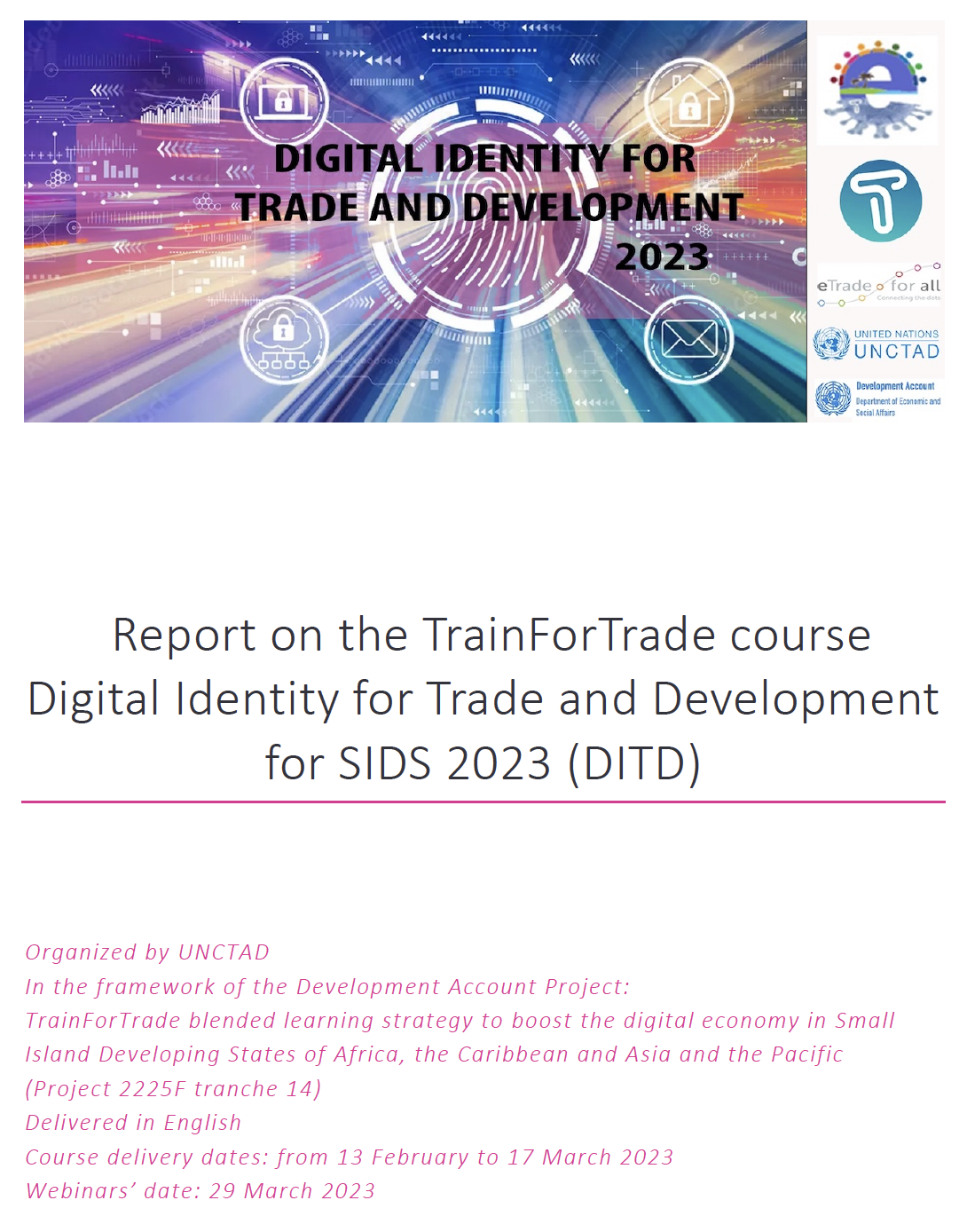
Digital Identity For Trade and Development: 2023 course Report
The United Nations Conference on Trade and Development successfully organized an e-learning course on “Digital Identity for Trade and Development” (DITD). It was delivered from 13 February to 17 March 2023, followed by two concluding webinars held on 29 March 2023.
Designed specifically for Small Island Developing States, the course was also open to other
countries/territories in the Pacific and the Caribbean regions. Among the 378 trade practitioners from 47 countries or areas who initially registered, 234 started the course, while 172 completed it and obtained a certificate. The course contributed to women’s empowerment: they represent 60 per cent of graduates (103 over 172). Overall, the training was successful and interactive. The average score and satisfaction rate were of 83 and 90 per cent respectively. The course was delivered via the TrainForTrade distance learning platform.
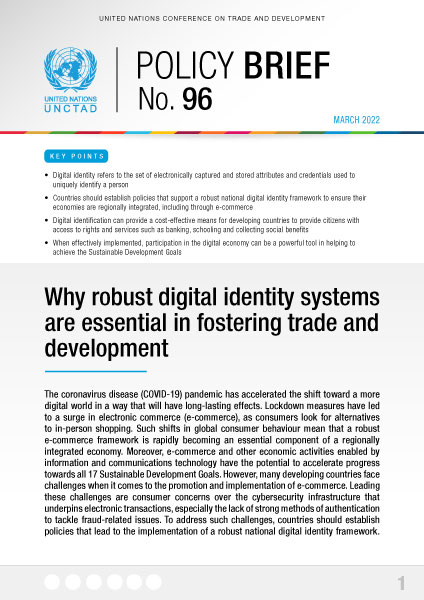
Why robust digital identity systems are essential in fostering trade and development
UNCTAD Policy Brief No. 96 The coronavirus disease (COVID-19) pandemic has accelerated the shift toward a more digital world in a way that will have long-lasting effects. Lockdown measures have led to a surge in electronic commerce (e-commerce), as consumers look for alternatives to in-person shopping. Such shifts in global consumer behaviour mean that a…
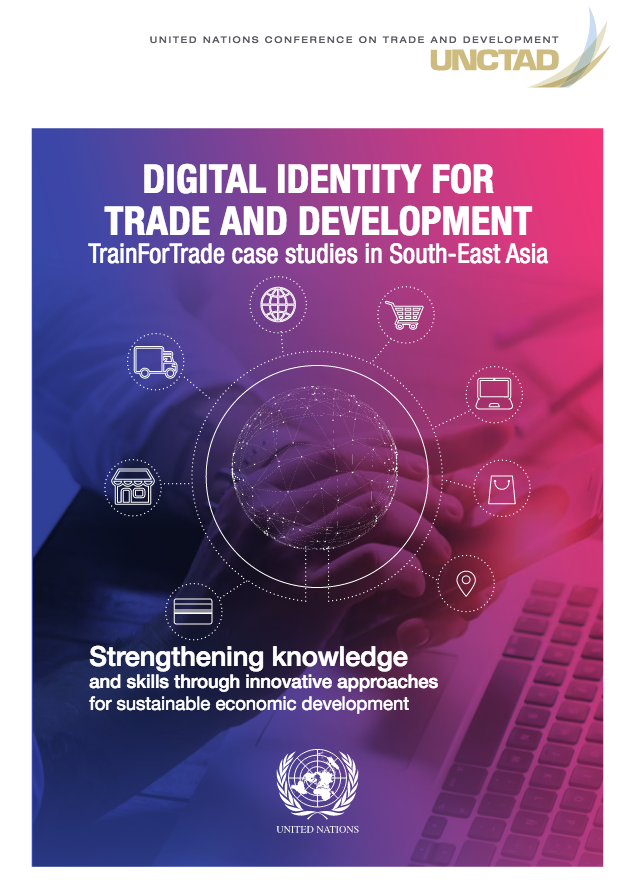
Digital Identity For Trade and Development: case studies in South East Asia
As connectivity within South-East Asia grows, it is critical for governments to put in place frameworks and mechanisms to leverage these developments and increase the use of digital platforms, while ensuring that there is proper governance, trust and authentication measures to support the development of the digital economy. Often considered the foundation of a digital…
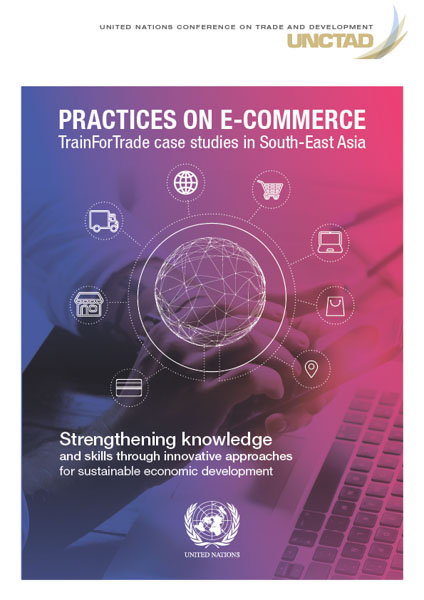
Practices on e-commerce: TrainForTrade case studies in South-East Asia
This report explores in its first chapter a history of the project. The second chapter gives an overview of the e-commerce situation in the region. The third chapter presents the selection of eight case studies prepared by the project’s participants, covering e-government, e-payment, transportation and logistics, marketplaces and digital marketing. These case studies provide succinct examples of good practices as well as policy recommendations for further development of e-commerce. The fourth chapter concludes the publication with a list of recommendations.
Participants in this project highlighted that the classic policy issues are still to be addressed.
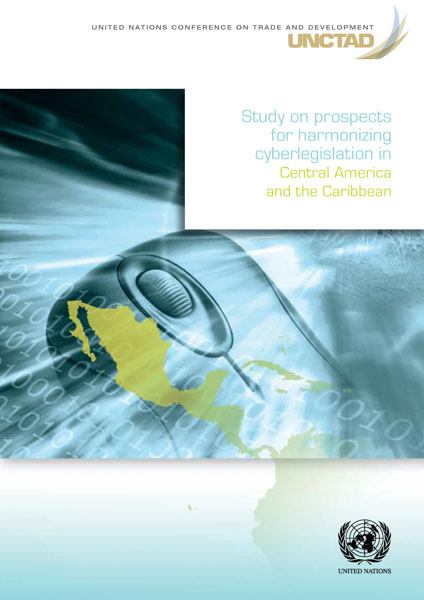
Towards e-commerce legal harmonization in the Caribbean
The establishment of adequate legal frameworks can facilitate the transition to a digital economy and the take-up of e-commerce in-country but also regionally and internationally by reducing uncertainties, enhancing trust and addressing potential harms.



